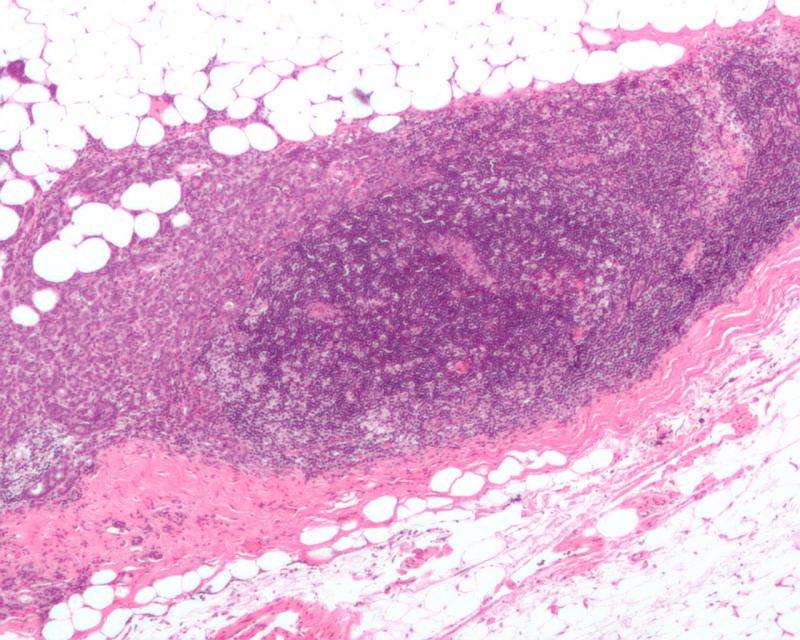Micrograph showing a lymph node invaded by ductal breast carcinoma, with extension of the tumour beyond the lymph node. Credit: Nephron/Wikipedia
Autologous fat transfer, also known as "lipofilling", is a minimally invasive procedure in which the plastic surgeon uses the patient's own fat obtained by liposuction to perform breast reconstruction. For more than a decade, experts have questioned the oncological safety of this technique when applied to the former breast cancer patient, because autologous fat transfer stimulates the formation of blood vessels and tissue regeneration; however, a recent BJS (British Journal of Surgery) meta-analysis of published studies found that the technique does not result in an increased rate of cancer recurrence.
The findings indicate that autologous fat transfer can be performed safely in breast reconstruction after breast cancer.
"Lipofilling need not be feared of causing cancer relapse in the former breast cancer patient," said lead author Dr. Todor Krastev of Maastricht University Medical Centre in the Netherlands.
More information: T. K. Krastev et al, Meta-analysis of the oncological safety of autologous fat transfer after breast cancer, British Journal of Surgery (2018). DOI: 10.1002/bjs.10887
Journal information: British Journal of Surgery
Provided by Wiley




















